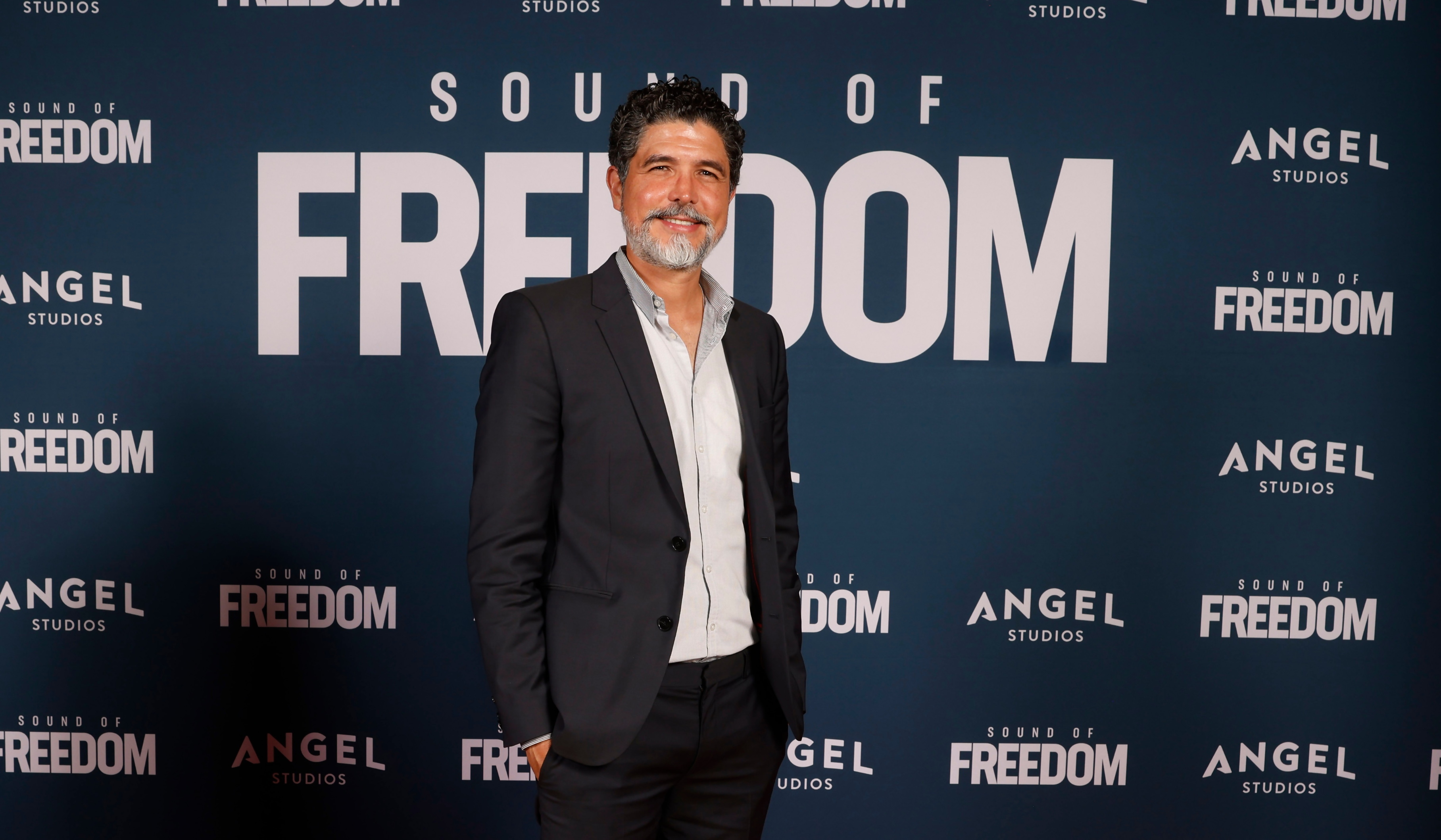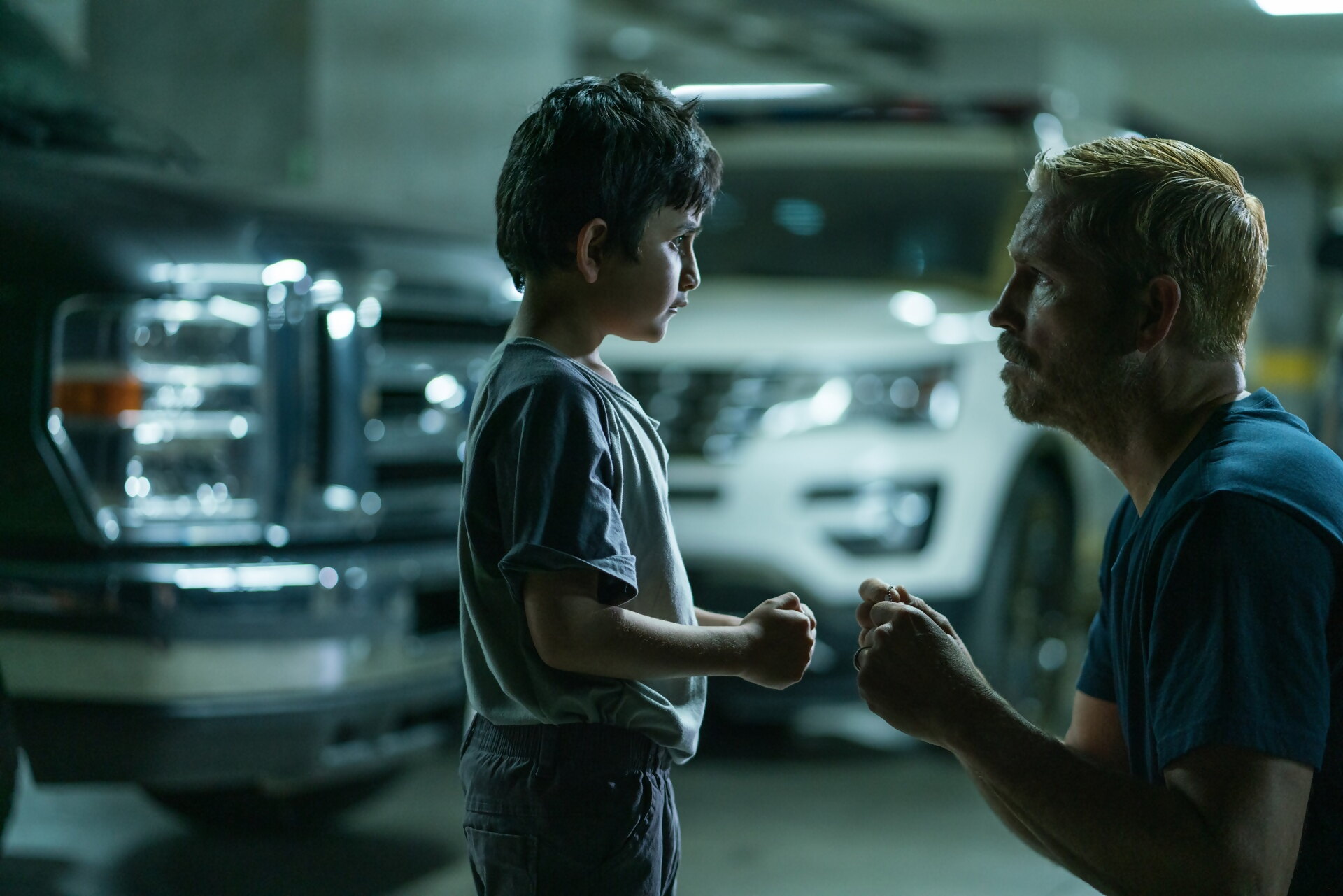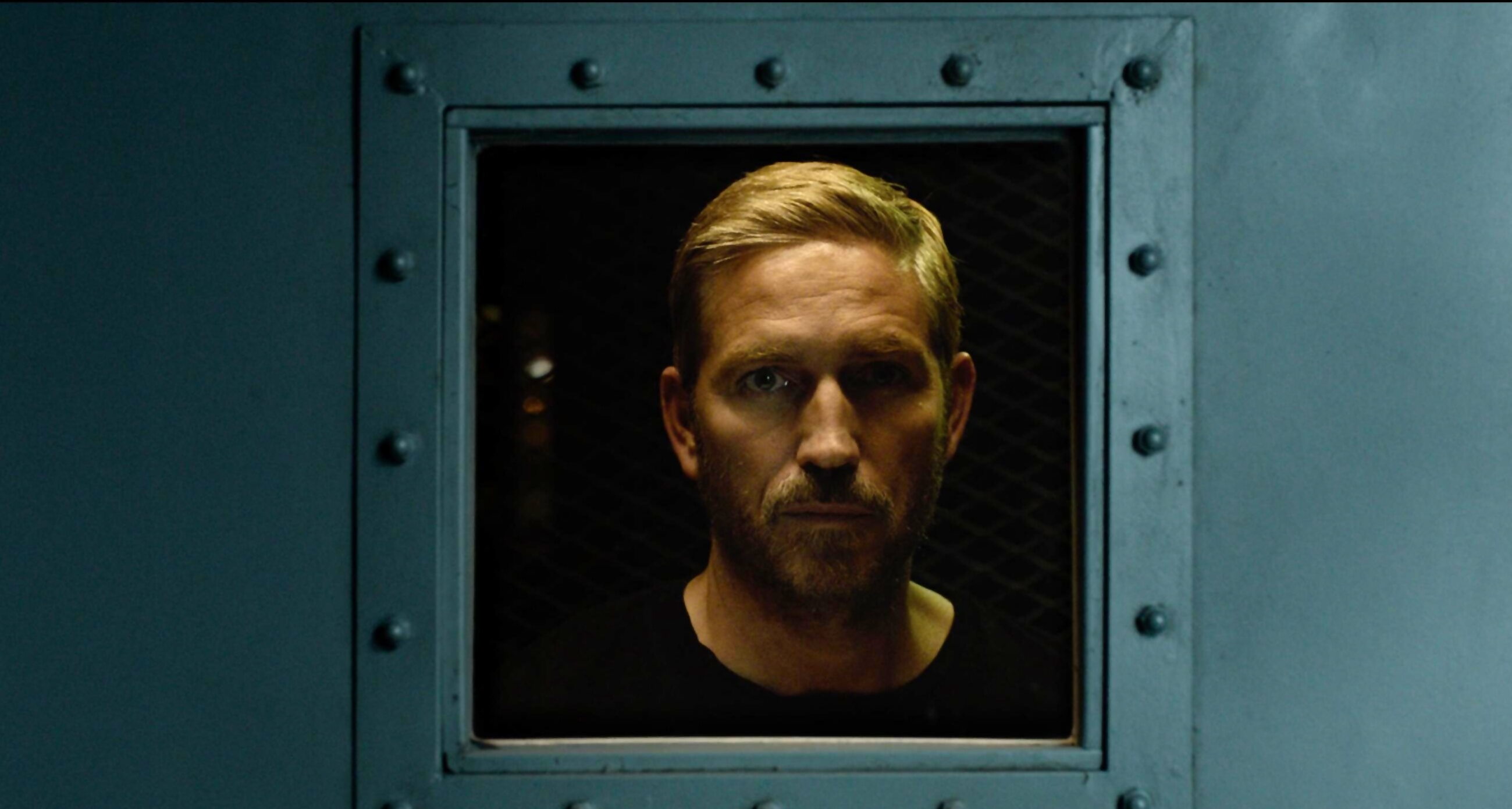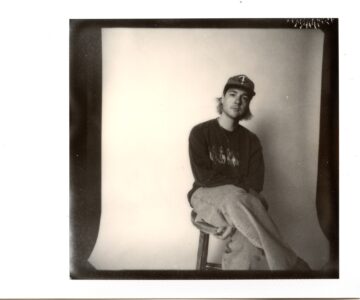
Sound of Freedom, Alejandro Monteverde’s drama about a real-life government agent-turned-vigilante, has become 2023’s most controversial film.
In July, when the film opened in the US, it went on to beat films such as Indiana Jones and the Dial of Destiny and the new Mission Impossible film at the box office, to everyone’s surprise.
It’s hard to say how or why Sound of Freedom was able to pull that off. A strong word of mouth, both for and against the film, probably had something to do with it, but much of the conversation has revolved around the politics of the people involved in the film rather than the film itself.

Credit: Angel Studios
The film follows Tim Ballard as he fights to catch child molesters and save two siblings who have been sold as sex slaves. It’s a very traditionally crafted thriller, but the conversation around the film rages on.
Monteverde, in London to promote the film before its 1 September launch, is unafraid to tackle the controversy now. In fact, he’s the one who brings it up in our chat, much to my surprise.
“I didn’t think this film was going to get this level of attacks. Well, it’s not a mystery, because, unfortunately, the movie falls into the political realm and politics divide. I stay away from politics. I like to make movies that unite, that create conversation.”
The Mexican director is incredibly chatty and I only manage three questions within our 17-minute conversation. Monteverde is overwhelmingly passionate about spreading the message of the film; that there are bad things happening to our children and we must do something about it.
“This is creating awareness [of] a subject matter that we were not very familiar with, at least myself. I felt this very strong calling to do something about it,” Monteverde tells me over Zoom.
At the centre of Sound of Freedom is Ballard. Ballard is a former government agent, who is in charge of capturing sex offenders in the US. Disheartened by the realities of his job, Ballard begins an ambitious operation in Colombia to not only catch child predators but to also save the victims.
It’s easy to see why the far-right as well as the Christian community have embraced the film in the US, even if this was never Monteverde’s intention. Ballard is represented as a weary, stoic American hero who will do anything to save the children from these monsters. “God’s children are not for sale,” Ballard growls in the film.
Public figures such as Elon Musk, Donald Trump, Mel Gibson and Ben Shapiro held screenings of the film, only strengthening the film’s somewhat divisive reputation.
Much has already been said and written about what aspects of the story are true and which are not, but Sound of Freedom is not a documentary on Ballard’s life or his work.
“Everybody knows, when you make a biopic you must, you must take creative licence. Otherwise you’re not making a movie, you’re making a documentary. You have to dramatise all these elements in order to explore the truth, some truths. I’m going to be the first one to say I took as much creative licence as I could,” Monteverde explains.

Credit: Angel Studios
“I would dare to say that the film was 75% to 80% accurate. And I took a 20% creative licence in order to make the film entertaining and cinematic, an odyssey. It’s a hard subject matter, I was using beauty in order to explore darkness.”
Ballard is played in the film by Jim Caviezel. Caviezel has been linked to QAnon, a far-right conspiracy theory that proposes that the liberal elite of the world are all part of a satanic, paedophile ring. Some even claim that the members extract a life-extending chemical called adrenochrome from their victims.
Caviezel spoke at a 2021 QAnon-affiliated event and mentioned Ballard, who personally requested Caviezel to play him in the film, could not be present as “he’s down there saving children as we speak, because they’re pulling kids out of the darkest recesses of hell right now, in … all kinds of places, uh, the adrenochroming of children.”
Sound of Freedom does not mention any of the aforementioned theories and Monteverde says he had never even heard of them when he wrote the film in 2015. It’s hard to say when exactly QAnon formed, but it certainly has become more popular in the last 3 years. Sound of Freedom was filmed in 2018 and finished in 2019.
The film began life as a fictional story about the horrors of child trafficking, but once Monteverde heard the story of Tim Ballard, he was inspired to merge his original idea with Ballard’s real life experiences.

Credit: Angel Studios
The film had a hard time finding a distributor until Angel Studios stepped in. Monteverde credits the Harmon brothers, the founders of Angel Studios as “incredible marketers and distributors” who think “outside the box” and “understood how to market this film”.
With so much controversy around the film, I ask how Monteverde feels about doing interviews, because we’re presumably all asking about said controversies.
“In the beginning, I didn’t want to do it. I actually went, poetically speaking, into hiding. I kind of secluded myself in my house, in my little cave and did what I know what to do, which is writing,” the director says, mentioning that he began writing a completely new film while hiding from the publicity of Sound of Freedom.
After a few weeks of peace and quiet away from the spotlight, Monteverde had a change of heart and decided to speak out.

Credit: Angel Studios
“Not just for me, but for all the people that worked on the film, with a pure motive to make a movie to create awareness on this darkness. After a couple of weeks, I decided, it’s time for me to go and set the record straight, because a lot of these accusations could just be dismantled.”
Monteverde also mentions being hurt that the conversation raged on, but without his input.
“There are some really solid, good journalists that I respect highly. But there were some other journalists that just felt very sloppy. Somebody said that I directed films that I’ve never seen in my life. And what he pained me the most is that they started accusing the film, and they didn’t even talk to me. I’m the author, I wrote [and] directed it.”
During our conversation, Monteverde often refers to “the media” as the source of the bad publicity, but also continuously credits the audience for making Sound of Freedom such as success. Angel Studios launched a unique marketing campaign which urged audiences to “pay it forward” and buy a ticket “for someone who would not otherwise be able to see the film” as a note at the end of the film reads.
“I’m very honoured that the audience are the ones that came out to set the record straight, to defend us and say, this is not what some media are accusing the film of.”

Credit: Angel Studios
So, what has Sound of Freedom been accused of in the media? The Guardian titled their review as “the QAnon-adjacent thriller seducing America”. Rolling Stone called it “a superhero movie for dads with brainworms”. Variety said it was “solidly made and disquieting”!
“I just hope that what happened in the US doesn’t happen internationally. I just came back from Latin America and the questions were way more neutral, more friendly, than the questions that [I] have been getting in the US. In the end, the movie is doing what I wanted the movie to do, which is to create a conversation.”
It seems that most of that conversation has revolved around politics, much to Monteverde’s annoyance. The multiple, deeply troubling controversies around the film have somewhat taken the focus off the subject of the film.
In Monteverde’s eyes, the film has been labelled something it is not. “QAnon-adjacent”, “controversial”, “faith based” are all titles Monteverde didn’t see coming.
“When you label [something] for the sake of labelling, it’s dangerous, because it just excludes audiences, and that hurts the filmmaker. I don’t make movies for one group, I make movies for everybody. This film is for people of no faith, [it’s] a movie for people of faith and for people in between.”
In Monteverde’s, and the film’s, defence, it is quite an experience to watch the film with an audience. At one of the few London screenings, many people were sobbing mere minutes into the film and the tears seemed endless during the film’s 131-minute runtime. As Monteverde notes, over 20 million people have seen Sound of Freedom in the US alone and the story, as well as the delicate subject matter, have clearly resonated with audiences.

Credit: Angel Studios
“I imagine that when people see the film, they get moved by these horrors, and that is happening all around the world. I like to make movies [that] propose, not impose, a theme. This is a proposition to create a conversation, a social dialogue, about how deep this problem is. Awareness creates change,” Monteverde says.
While Monteverde has clearly been hurt by the negative publicity for his film, he doesn’t seek to silence those who have spoken out against his film and seems, at least in theory, alright with people not liking his film.
“People have the right to voice their opinions all they want. I feel that the one of the most dangerous things today is that we want to control each other, and we shouldn’t control each other. If people want to voice their personal opinions, so be it.”
Sound of Freedom is in UK cinemas 1 September.




